National Quality Member Spotlight: The Garage Community and Youth Center
March 18, 2019
The Garage Community and Youth Center has been a haven for middle and high school youth who living near their two sites in Kennett Square and West Grove, Pennsylvania. Amongst diverse out of school time programs like arts, community service activities, career coaching, and tutoring, their longstanding mentoring program was a cornerstone for the center. Operated by a long-tenured staff member with deep organizational knowledge, the program provided high quality mentoring experiences year over year to the Garage students.
While students were receiving high quality services, the Garage staff ran into a common problem. Executive Director Kristin Proto says, “When one person is running [the program], the process lives in that person’s head. Doing this assessment can help bring that knowledge back to the organization. We can ask questions like, how does what we say we do translate into what happens on the ground? Is it working? Did what we put into place five years ago still relevant?”
The assessment Proto refers to is called NQMS or the National Quality Mentoring System. NQMS is an evidence-based assessment based on the Elements of Effective Practice for Mentoring, a document codifying the research on what makes a high-quality mentoring program that promotes positive outcomes for youth. NQMS uses an online portal and the support of a MENTOR Independence Region staff expert to help guide mentoring programs through a 92 question self-assessment that reflects the evidence-based practices. During that self-assessment, program staff can reflect on policy, process and procedure and the degree to which they’re implementing those standards in real life.
For the Garage, this comprehensive, external evaluation was of great value. “For us, having this assessment and the resource of the true experts in this field is of great value. We can come up with new ideas all day, but we don’t have the capacity for this type of assessment or to find all the resources that are out there…having an expert org a phone call away helps us to distill what we need to do.” In addition, it spurred conversations among staff that wouldn’t have happened otherwise – critical conversations about evaluation and opportunities for improvement. And, it brought all that knowledge about process and procedure back into the organization.
The report they received on their strengths and opportunities was clear and concise. Proto says it is “nice and easy and digestible. Useable.” And the report results were affirming, showing strong operations and management of the program. “It was exciting and affirming to staff that we’re doing a good job,” Proto said, “we should celebrate as staff and with mentors and mentees, we should be proud. It’s a good reflection from an outside source expert to say you’re doing a good job.”
And the vital discussions afterwards about areas for opportunity have already sparked improvements for the coming school year. New tweaks to mentor recruitment and timing, as well regularly occurring mixer events will allow them to better engage interested participants, provide training and activity opportunities for matched participants, and allow for better support of matches. Some structural elements of the program will change as well. “The Technical Assistance that is available afterwards free to programs via the National Mentoring Resource Center is huge!” Says Proto, referring to free consultation on mentoring best practices that is available to mentoring programs made possible by the Office of Juvenile Justice and Delinquency Prevention.
And at the Garage, they’re carrying their learnings from the assessment into other areas of the agency to better strengthen their mission to empower you to pursue their potential. As they worked to improve the mentoring program, they pulled in staff ideas from other programmatic areas, breaking down silos and creating space for real collaboration. “We engaged the larger group in solutions and tweaks …and the conversations we had as a result were really beneficial.” In all, Proto felt that while they knew NQMS was a good move for the mentoring program, they got more than they thought they would. “We didn’t understand the true value of it until afterwards. It was good for all of us, and we got even more out of it than we thought initially.”

